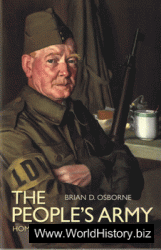Also known as the Contract Air Mail Act, the Kelly Air Mail Act established a competitive bidding system for private airlines to provide mail transport for the U. S. Post Office in 1925. It was the first major step toward the creation of a private U. S. airline industry, and was named after its chief sponsor, Representative Clyde Kelly of Pennsylvania. Winners of the five initial contracts were National Air Transport (Curtiss Aeroplane Company), Varney Airlines, Western Air Express, Colonial Air Transport, and Robertson Aircraft Corporation. Various air transport holding companies soon appeared, including American Airways, which later transformed into American Airlines, and United Aircraft, which later became United Airlines. By the mid-1920s, the Post Office mail fleet was flying 2.5 million miles and delivering 14 million letters annually. The formation of a mail transport system by the Post Office Department further spurred the development of the air transportation industry. Once the Kelly Air Mail Act was passed, the private carriers who provided air transport for the Post Office expanded into carrying other forms of cargo, and eventually passengers.
The same year Congress passed the Kelly Air Mail Act, President Calvin Coolidge formed a board to recommend a national aviation policy. Dwight Morrow, the future father-in-law of Charles Lindbergh, was named chairman. The report advised that the government set standards for the air transport industry. It argued that the military should not be involved. The Air Commerce Act of 1926 provided for federal regulation of air traffic rules. The legislation authorized the secretary of commerce to designate air routes, develop air navigation systems, license pilots and aircraft, and investigate accidents. Congress amended the Kelly Act by simplifying the payment system. Pilots would get paid by the weight of the mail, not as a percentage of postage paid.
As the industry grew, the Post Office increasingly had influence over the airline industry and limited the number of carriers that were granted the coveted mail transport contracts. These practices were ruled anticompetitive, and the industry once again opened up to a competitive bidding system, until 1938, when the Civil Aeronautics Authority was developed.
See also aviation.
Further reading: Roger Bilstein, Flight in America: From the Wrights to the Astronauts, 2d ed. (Baltimore: Johns Hopkins University Press, 1994).
—Annamarie Edelen




 World History
World History









